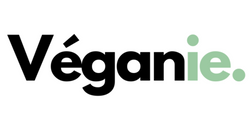Why is honey not vegan?
What would you say if aliens plundered the fruits of your labor and your food supplies? Put yourself "in the shoes of a bee" and you will have a vague idea.
For many of us, honey appears to be a natural, healthy, sweet and ultimately rather pleasant product. Some have even attributed pseudo-medical virtues to it in order to market it better, note in passing that the health claims concerning honey are not scientifically proven and that they have been banned by the European Commission since 2012.
Finally, let's go back to our sheep, or rather to our bees, and we will see that honey is not Vegan in many ways.
Honey and vegans
The first reason we could give for not consuming bee products is that HONEY IS THE ONLY RESERVE OF FOOD FOR BEES. It is therefore essential for their survival in all seasons and in particular in winter.
You must also understand that to collect honey, you have to drive the bees out of their hive, but the bees seek to defend their hive and they are ready to die to protect it:
"Everyone knows what one incurs if one tries to appropriate the honey of a wild swarm with his bare hands. To say that bees do not agree to share their production is an understatement. All are ready to die to protect her. Indeed, the stinger of bees has barbs or small points that prevent it from coming out, unlike that of wasps. When the bee has stung, it therefore leaves its stinger, poison glands and part of its abdomen. This inevitably leads to his death. It seems difficult to attribute to this behavior, conscious or not, any other meaning than an overt defence. There is therefore no contract between man and bee. »
Harvesting honey may seem trivial, but it is not…
Ethics and animal respect vs Trade and profitability
Beekeeping, like any form of breeding, is not compatible with animal welfare, a few examples are enough to demonstrate this (even if not all beekeepers do this):
– The smoking method: To harvest honey, propolis, royal jelly… you have to drive the bees out of their hive. Often used, the practice of smoking consists of smoking out the hive, which stresses the bees which can be poisoned, fall paralyzed to the ground, be crushed.
-The "turn-over" method, or "renewal of queens": This other practice consists in changing the queens in order to increase their productivity. Concretely each season, the queens are killed to be replaced by others deemed more profitable...
- Clipping, or "wing clipping": This process allows the beekeeper to ensure that the queen will remain in the the hive.
-Destruction of the least profitable hives: This involves destroying the least profitable hives after harvest in order to reduce their number in winter. Unfortunately, it seems more profitable to import new colonies in the spring than to feed the bees in the winter.
For hives also relocation!
The latest trend in terms of beekeeping profitability is to move the hives according to flowering. These hives are therefore closed and transported to other horizons, which of course stresses the bees enormously, but their work will be more profitable if they go foraging elsewhere.Finally, those who will not have died during the trip...
Let us remember once again that not all beekeepers use this process, but the fact remains that with or without extreme brutality, breeding of bees and the appropriation of the fruit of their labor are definitely not vegan The more we consume bee products: honey, royal jelly, propolis... and the more the bees are forced to work to compensate for this loss.
Honey without honey, is it possible?
The good news though is that there are alternatives to honey. Agave syrup, nicknamed Honey water by the Aztecs, has a sweetening power 30% higher than that of sugar. Date juice, nicknamed Date honey, is very rich in fibre. Molasses, which remains after the refining of sugar and which is less caloric than white sugar or honey. Dandelion flower jam which is a very good substitute for honey.
Sources:
Vegetarian Alternatives: June-July-August 2013, p.12 to 18
Société Végane.fr: http://www.societevegane.fr/documentation/ethique/le -honey-is-stealing/






